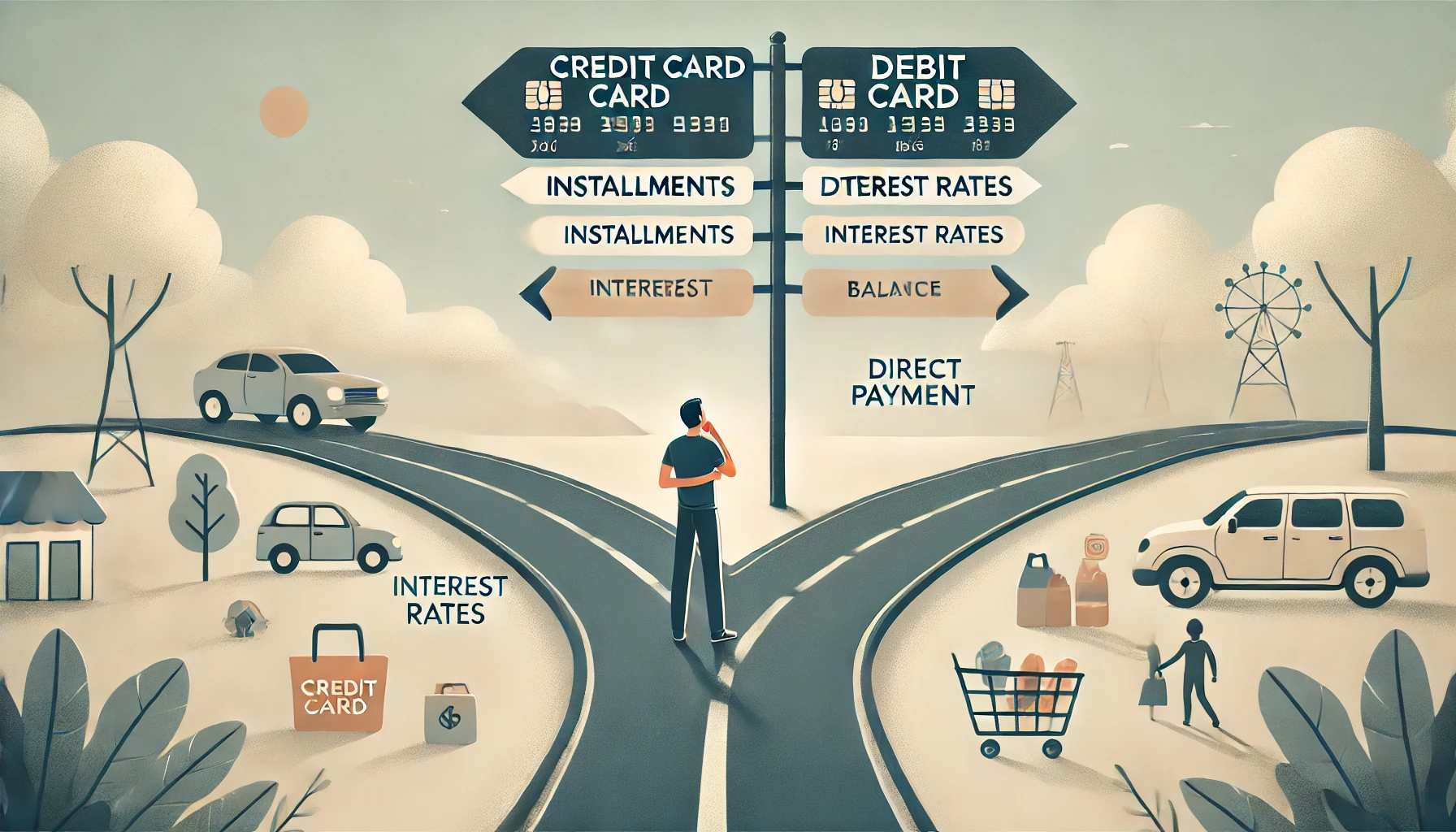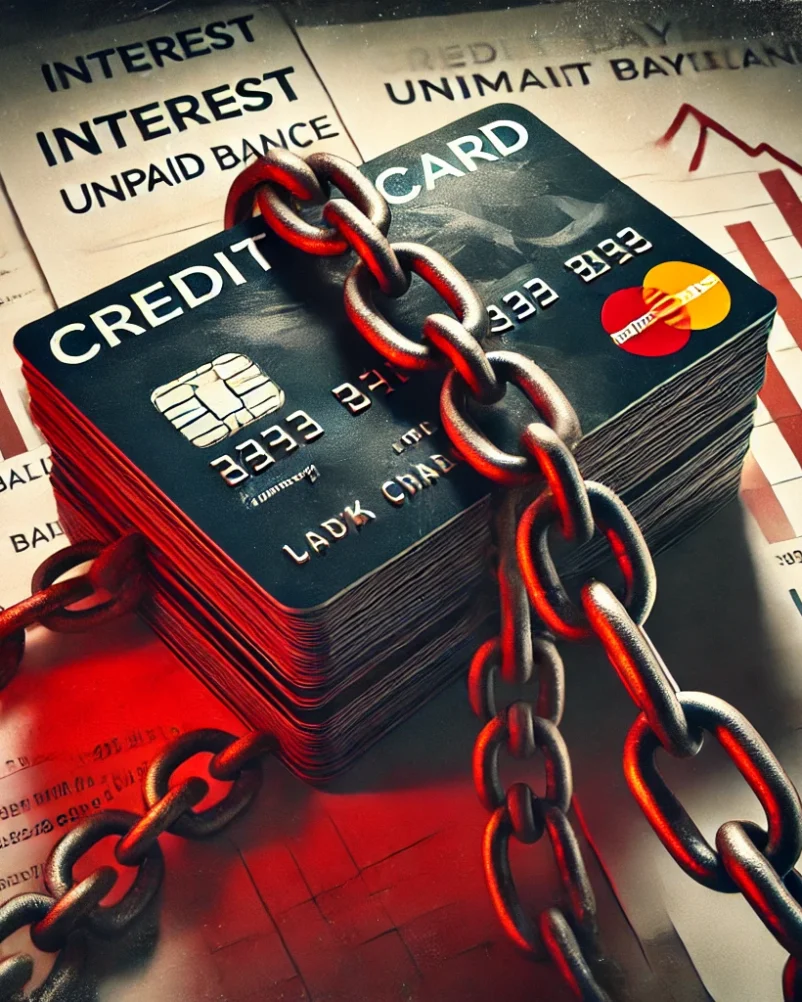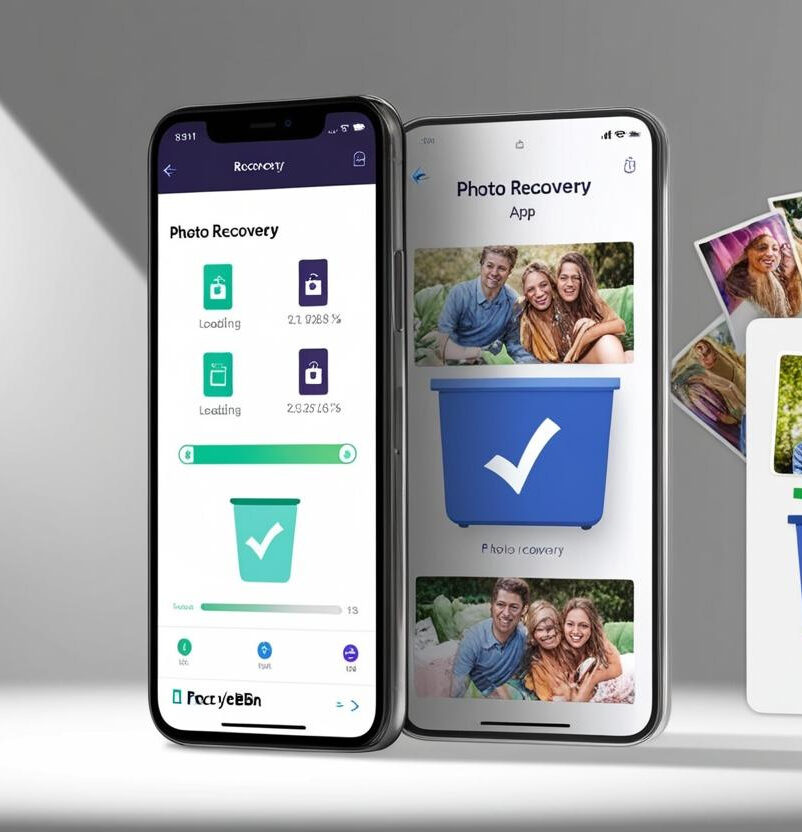Anúncios
Choosing between a credit card and a debit card can seem confusing at first, but understanding their differences is key to making the right financial decision for your needs.
This article will guide you through the fundamental distinctions, benefits, costs, and financial impacts of each, helping you determine which card aligns best with your spending habits and financial goals.
1. Understanding How Credit and Debit Cards Work
Credit cards and debit cards are both widely used financial tools, but they function differently. A debit card is directly linked to your bank account, allowing you to spend only the money you have available. When you make a purchase, the funds are immediately deducted from your checking or savings account.
In contrast, a credit card provides a line of credit that you can borrow against up to a certain limit. When you use a credit card, you’re essentially borrowing money from the card issuer, which you agree to pay back later, typically with interest if the balance isn’t paid in full each month.
Understanding these basic functionalities is crucial as it sets the foundation for evaluating which card better suits your financial lifestyle.
2. Benefits of Using a Credit Card
Credit cards offer several advantages that can enhance your financial flexibility and security:
2.1 Building Credit History
Regular, responsible use of a credit card can help build and improve your credit score. A higher credit score can lead to better loan terms and lower interest rates in the future. Establishing a strong credit history is essential for major financial decisions, such as purchasing a home or car. By maintaining low credit utilization and making timely payments, you demonstrate financial reliability to lenders.
2.2 Rewards and Benefits
Many credit cards offer rewards programs, such as cashback, travel points, or discounts on purchases. These incentives can add significant value over time. For instance, cashback rewards can help reduce your overall spending by returning a percentage of your purchases. Travel points can accumulate and be redeemed for flights, hotel stays, or other travel-related expenses, making your everyday spending work harder for you.
2.3 Purchase Protection
Credit cards often come with protections like extended warranties, insurance for damaged or stolen items, and fraud protection. These benefits provide peace of mind during transactions, ensuring that your purchases are safeguarded against unforeseen circumstances. Additionally, many credit cards offer dispute resolution services, allowing you to contest charges if you encounter issues with merchants.
2.4 Emergency Funding
In unexpected situations, a credit card can serve as a temporary financial cushion, allowing you to cover expenses when you don’t have immediate access to funds. Whether it’s a sudden medical emergency or an urgent home repair, having access to credit can help you manage without disrupting your financial stability.
2.5 Convenience and Acceptance
Credit cards are widely accepted both online and in physical stores, making them a convenient option for everyday purchases and larger transactions alike. They eliminate the need to carry large amounts of cash and provide a seamless payment method for a variety of vendors and service providers.
However, it’s essential to manage credit card usage carefully to avoid potential downsides like debt accumulation and high-interest payments.
3. Benefits of Using a Debit Card

Anúncios
Debit cards also come with their own set of advantages, particularly for those who prefer to manage their finances closely:
3.1 Spending Control
Since debit cards are linked directly to your bank account, you can only spend what you have. This helps prevent overspending and accumulating debt. It promotes financial discipline by ensuring that your spending aligns with your actual available funds, reducing the temptation to spend beyond your means.
3.2 No Interest Charges
Unlike credit cards, debit cards do not charge interest since you’re using your own money rather than borrowing from a lender. This makes debit cards a cost-effective payment method, especially for everyday transactions where incurring debt would be unnecessary and costly.
3.3 Lower Fees
Debit cards typically have fewer fees associated with them compared to credit cards. There’s no annual fee in many cases, and there are no interest charges to worry about. This makes debit cards an economical choice for those who prefer to minimize their financial obligations and avoid the complexities of managing interest and fees.
3.4 Immediate Access to Funds
Transactions made with a debit card are processed instantly, providing real-time access to your account balance. This immediacy ensures that you have a clear understanding of your spending limits and can monitor your account activity closely, enhancing your ability to manage your finances effectively.
3.5 Security Features
Modern debit cards come with security measures like PIN protection and fraud monitoring, safeguarding your funds against unauthorized use. Additionally, many debit cards offer zero-liability policies, meaning you won’t be held responsible for fraudulent transactions if reported promptly, providing an extra layer of financial security.
Debit cards are ideal for those who prefer a straightforward approach to spending without the complexities of credit management.
4. Costs and Fees Associated with Each Card
When deciding between a credit card and a debit card, it’s important to consider the associated costs and fees:
4.1 Credit Card Costs
• Interest Rates:
If you carry a balance beyond the grace period, interest charges can accumulate rapidly, often ranging from 15% to 25% APR. This can significantly increase the total amount you owe, especially if you’re unable to pay off your balance in full each month.
• Annual Fees:
Some credit cards charge annual fees for the benefits and rewards they offer, which can range from $25 to several hundred dollars. While some premium cards justify these fees with extensive rewards and perks, it’s crucial to evaluate whether the benefits outweigh the costs.
• Late Payment Fees:
Missing a payment can result in hefty late fees and negatively impact your credit score. Consistently making timely payments is essential to avoid these penalties and maintain a healthy credit history.
• Foreign Transaction Fees:
Purchasing abroad or online from international retailers may incur additional fees, typically around 3% of the transaction amount. This can add up if you frequently travel or shop internationally.
4.2 Debit Card Costs
• Overdraft Fees:
If your account allows overdrafts, you might incur fees for spending more than your available balance. Overdraft fees can be substantial, often ranging from $30 to $35 per occurrence, which can quickly add up if not managed carefully.
• ATM Fees:
Using out-of-network ATMs can result in withdrawal fees, which vary depending on your bank’s policies and the ATM operator. These fees can be avoided by using your bank’s ATMs or those within your network.
• Maintenance Fees:
Some accounts charge monthly maintenance fees, though these can often be waived by meeting certain criteria, such as maintaining a minimum balance or having direct deposits. Understanding these costs helps you make an informed choice based on your financial situation and spending habits.
5. Impact on Financial Health
Choosing between a credit card and a debit card can significantly influence your financial health in various ways:
5.1 Credit Cards
• Positive Impact:
Responsible use, such as making timely payments and keeping credit utilization low, can enhance your credit score, opening doors to better financial opportunities. A strong credit history is essential for securing favorable loan terms, qualifying for higher credit limits, and obtaining lower interest rates on future credit products.
• Negative Impact:
Mismanagement, such as carrying high balances and making late payments, can lead to debt accumulation, increased interest costs, and a damaged credit score. This can make it challenging to obtain loans, credit cards, or even rent an apartment in the future, as landlords and lenders often check credit scores as part of their evaluation process.
5.2 Debit Cards
• Positive Impact:
Promotes disciplined spending since you’re limited to your available funds, reducing the risk of debt. This can help you maintain a balanced budget and avoid the pitfalls of overspending, fostering healthier financial habits.
• Negative Impact:
Limited opportunities to build credit history, which can be a drawback if you’re looking to improve your credit score for future loans or financial products. Without a credit history, securing favorable loan terms or higher credit limits becomes more challenging, potentially limiting your financial flexibility in the future. Balancing the use of both cards can provide flexibility while maintaining financial stability.
6. Comparative Chart: Credit Card vs. Debit Card vs. Prepaid Card vs. Charge Card
| Features | Credit Card | Debit Card | Prepaid Card | Charge Card |
|---|---|---|---|---|
| Credit Impact | Builds credit history if used responsibly | Does not impact credit history | Does not impact credit history | Builds credit history if used responsibly |
| Spending Control | High risk of overspending | Limited to available funds | Limited to preloaded amount | Requires full payment each month |
| Fees | Interest, annual, late payment fees | Overdraft, ATM, maintenance fees | Reload fees, ATM fees | No interest, annual fees |
| Rewards | Cashback, points, travel rewards | Rarely offers rewards | Minimal or no rewards | Often offers rewards |
| Usage | Wide acceptance, online and offline | Wide acceptance, online and offline | Limited acceptance, often online only | Wide acceptance, often premium services |
| Best For | Building credit, rewards, emergencies | Budgeting, avoiding debt | Temporary use, gifting, budgeting | High spenders who can pay in full monthly |
Legend:
• Credit Card: Borrowing tool with credit line and rewards.
• Debit Card: Direct spending from your bank account.
• Prepaid Card: Funds preloaded, spending limited to balance.
• Charge Card: Requires full payment each month, often with rewards.
7. Testimonials
1. Anna from Germany
“I chose a credit card to help build my credit history for future investments. The rewards program also gives me cashback on everyday purchases, which is a great bonus. However, I always make sure to pay my balance in full each month to avoid interest charges.”
2. Miguel from Portugal
“Using a debit card has helped me stay on top of my budget. I appreciate that I can only spend what I have, which prevents me from falling into debt. It’s straightforward and reliable for my daily transactions.”
3. Sarah from the United States
“I started using a credit card to take advantage of travel rewards. It has been fantastic for booking flights and hotels at discounted rates. Plus, the purchase protection gives me peace of mind when shopping online.”
8. Frequently Asked Questions (FAQs)
1. Can I use a debit card to build my credit score?
No, using a debit card does not impact your credit score because it is linked directly to your bank account and does not involve borrowing. To build your credit score, consider using a credit card responsibly by making timely payments and keeping your credit utilization low.
2. What happens if I miss a credit card payment?
Missing a credit card payment can lead to late fees, higher interest rates, and a negative impact on your credit score. It’s important to make payments on time to maintain good credit health. If you’re unable to make a payment, contact your credit card issuer to discuss possible solutions.
3. Are there any benefits to having both a credit and a debit card?
Yes, having both a credit and a debit card allows you to manage your finances more effectively. A debit card helps control spending by using your own funds, while a credit card offers benefits like rewards, credit building, and purchase protection. Using both responsibly can enhance your financial flexibility and security.
4. Do credit cards offer better fraud protection than debit cards?
Yes, credit cards generally offer better fraud protection compared to debit cards. If your credit card is used fraudulently, the money is not taken directly from your bank account, and your liability is limited if you report the fraud promptly. Debit cards, on the other hand, are linked directly to your bank account, and recovering stolen funds can be more time-consuming and complicated.
9. Related Topics
• Credit Score Improvement
• Debt Management
• Financial Planning
• Rewards Programs
• Fraud Protection
Choosing between a credit card and a debit card depends largely on your financial habits, goals, and needs. Credit cards offer benefits like building credit history, rewards, and purchase protection, making them ideal for those looking to enhance their financial profile and enjoy additional perks. However, they require disciplined spending and timely payments to avoid debt and high-interest charges.
On the other hand, debit cards provide a straightforward way to manage your finances by limiting spending to available funds, reducing the risk of debt accumulation. They are perfect for budget-conscious individuals who prefer to keep their spending in check without the complexities of credit management.
Ultimately, having both a credit and a debit card can offer the best of both worlds—allowing you to enjoy the benefits of credit while maintaining control over your spending with a debit card. Evaluate your financial situation, spending habits, and long-term goals to decide which card—or combination of cards—best suits your lifestyle.
By understanding the functionality, benefits, costs, and financial impacts of each type of card, you can make informed decisions that support your financial health and help you achieve your monetary objectives.



